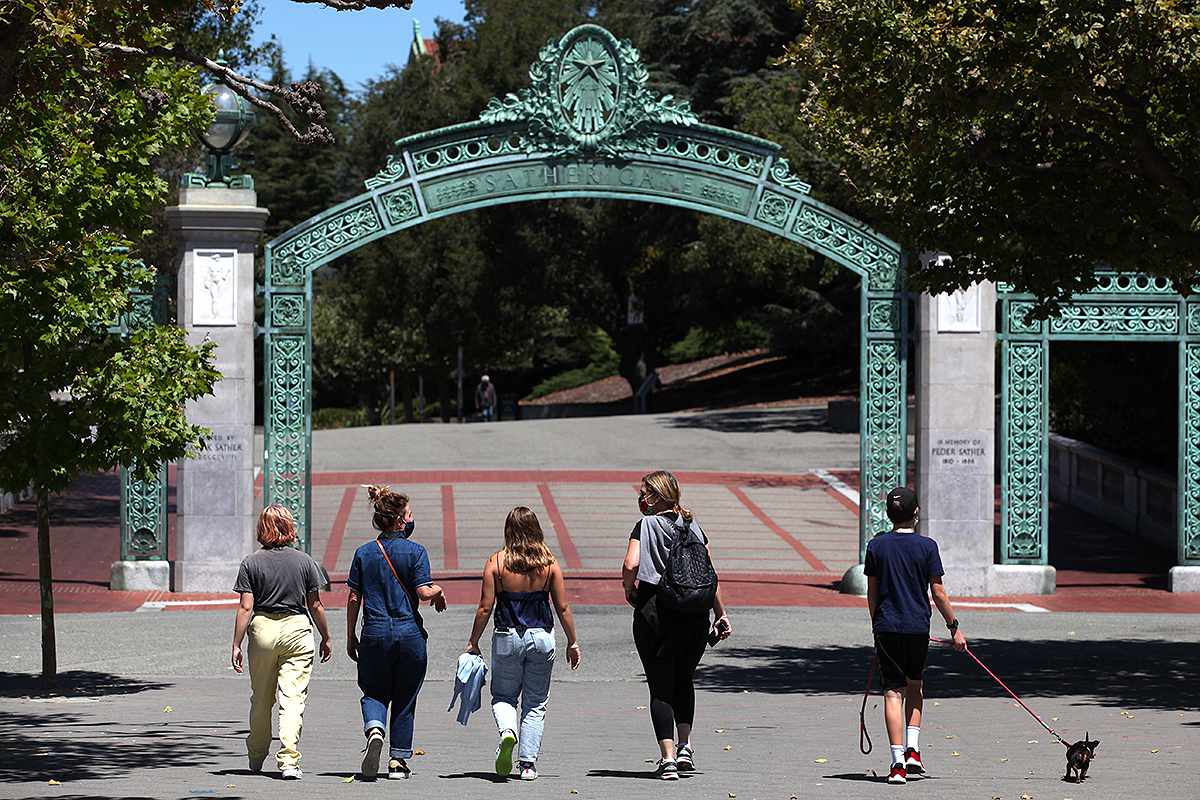UC Berkeley Is Returning Thousands of Ancestral Remains to Indigenous People: 'Restorative Justice'

Justin Sullivan/Getty UC Berkeley
The remains of thousands of ancestors will be returned to Indigenous tribes by the University of California, Berkeley.
"It wasn't right for past generations to dig up their remains and take them to Berkeley or anywhere else," Ted Hernandez, chairman of the Wiyot tribe, told CNN of the decision to give back the remains. "But people can learn from their mistakes and the new generation has been able to finally see why this was wrong."
The Wiyots lived on Northern California's Duluwat Island when White settlers massacred dozens of women, children and elders during an annual ceremony the tribe held in 1860, according to CNN.
The tribe, along with other Indigenous peoples, will have the remains of their ancestors returned as part of the university's compliance with the Native American Graves Protection and Repatriation Act (NAGPRA).
"UC acknowledges that the injustices perpetrated on Native Hawaiians and Native Americans are reflected even to the present, and that as long as Human Remains and Cultural Items remain in the University's control, healing and reparation will be incomplete," the university said on its website.
RELATED: The University of Oregon Will Cover Tuition and Fees for Indigenous Students Living in State
Sabrina Agarwal, bio-archaeologist and UC Berkeley NAGPRA Committee chair, told CNN that she hopes the return will "rebuild" relationships between Indigenous tribes and the museums and institutions that have held their belongings "without their consent for more than 100 years."
"This is part of restorative justice across the country. If we want to rebuild those relationships, repatriation is the first step," Agarwal said. "There can't be healing or rebuilding trust without repatriation."
RELATED: Boise State Joins Over 140 Other Schools Partnering with Amazon to Offer Free College Tuition
Hernandez told CNN that the decision is a step in the right direction when it comes to healing long-standing wounds felt by Indigenous tribes around the country.
"Those people who think this is not a big deal or doesn't matter: Imagine someone goes to your cemetery, digs up your ancestors, packs them in boxes and puts them on a shelf," he said. "Our ancestors should not be in boxes or on shelves, they should be home with their families."
RELATED VIDEO: University of Virginia Disenrolls Hundreds for Violating COVID-19 Vaccine Policy
UC Berkeley's NAGPRA committee, which is made up of three faculty members and three tribal community members, has so far returned at least 1,000 ancestral remains and more than 53,000 other items, Agarwal told CNN.
"We had our bad days with Berkeley when they didn't want to work with us, so we were definitely skeptical in the beginning, but I've seen the honesty coming from the staff today and how much they do want to help," Hernandez said. "We've been put through a lot. We were massacred, enslaved, and hunted. So trust is a hard word, but we're slowly getting there. It takes work."

 Yahoo News
Yahoo News 
